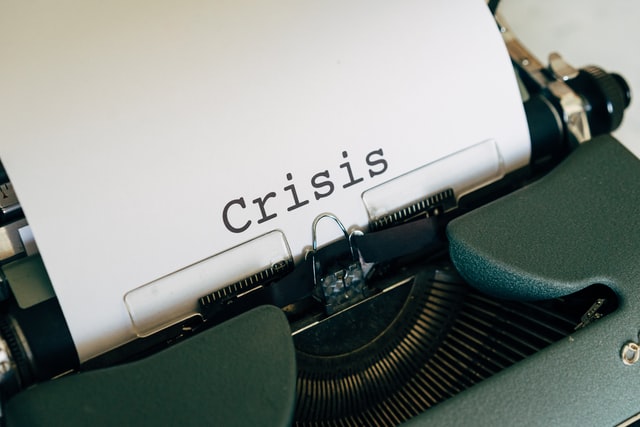Marketing is not an expense; it's a Return on Investment
During times of uncertainty, we all want to reduce as much risk as possible. Marketing is often considered expendable within an organization and comes as one of the first items businesses cut back. You might save money quickly by cutting your marketing budget, but it is one of the worst actions to take as marketing is not an expense; it's an ROI. And big problems can actually create even bigger opportunities.
 source: www.unsplash.com
source: www.unsplash.com
The Advertising Specialty Institute has pulled together 100 years of indicators that all point to the same conclusion: during challenging economic periods, the best thing a business can do is to double down on marketing and advertising.
The Advertising Specialty Institute has looked into the past recessions. The data shows that the best thing a business can do during challenging economic periods is double down on marketing and advertising.
- In 1927, Harvard Business Review uncovered that companies that maintained their investment in branding and marketing through the Great Depression came out 20% ahead of how they went into recession.
- Buchen Advertising uncovered that companies that cut advertising during the 1949, 1954, 1958 and 1961 recessions all lagged in sales and profits behind those that did not.
- McGraw Hill Research studied 600 B2B companies in the 1980s and found that those that doubled down on building their brand and advertising grew 275% more than those that did not.
……
The list goes on.
 source: www.unsplash.com
source: www.unsplash.com
What happens when you cut your budget?
For a new brand, you will struggle to get your brand heard and recognized in the market. You may continue to lose customers and sales as your brand fades into obscurity, which can cost your business.
For an existing brand, you will fall behind as your competitors continue to invest in their digital marketing, woo the customers, and take over your advantageous position.
Also, brands need to bear in mind that the customers are still spending and buying! They are becoming very conscious of where their money goes, and they want to buy the right products from brands they trust, which again indicates the importance of marketing and making your brand known to the consumers.
 source: www.unsplash.com
source: www.unsplash.com
So, how should you revise your marketing strategy?
Keep the engagement going but in a more conscious approach.
During times of uncertainty, consumers want reassurance. They prefer and will trust brands that understand them, speak their language and address their needs. Keep in touch with your audience. This does not necessarily mean mass digital ads or sales promotions. Show them you understand them, and make yourself their friends. Brands can start finding their message by asking themselves - “How can we really help them?”
Win the market by grabbing the space your competitors have left!
Research shows that the best time to launch a new product is actually right in the middle of the recession. After seeing competitors pulling back on marketing spending, many forward-thinking and ambitious businesses choose now to launch better, more comprehensive campaigns to grab the space left by their competitors and win the attention of ready and motivated customers who want to spend! Now could be your opportunity to truly differentiate and dominate your market and cement your position for long-term sales and success!
And in the end – if you really need to cut your budget, how to do it wisely?
We suggest a three-step approach – measure, test, and adjust quickly.
Knowing what works can help you plan your budget more easily when budgets are tight. So, your KPIs should be as clear and measurable as possible. Be responsive and have a plan B/C/D when your first strategy doesn't work. Know how your marketing budget is segmented, which of these can be reduced, and which cannot be touched regardless of the circumstances.
In time of uncertainty, we know companies are tempted to pause everything. Our motto "Marketing made measurable" has been currently changed to "Marketing made adaptable" to respond to the crisis. Contact us to see how we can adapt your current strategy to reach your consumers and remain meaningful to them

Click on the image to see how we make marketing adaptable
In the coming articles, we will continue to discuss the lessons we could learn from the past and how to leverage your post-pandemic strategy better.
Read previous article from this series:
Why shouldn't you cut your marketing budget ?



 source:
source:  source:
source: 
